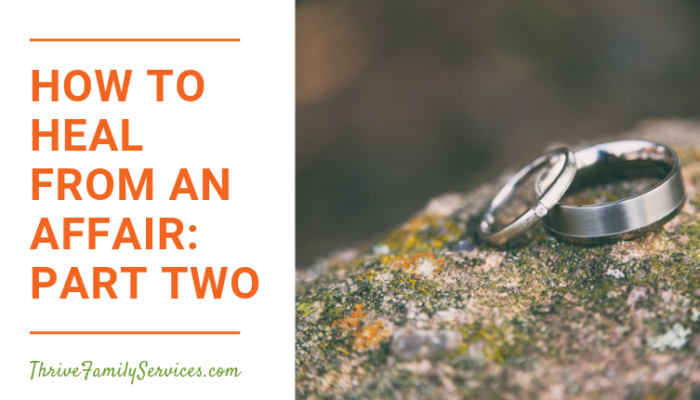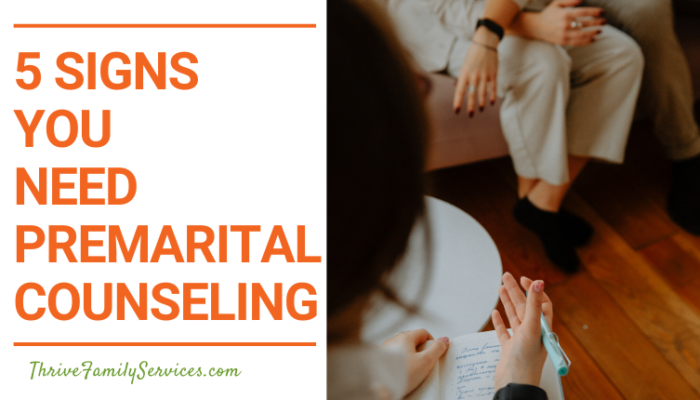As a relationship therapist, there is a question I get asked a lot about cohabitation in both a personal and professional setting:
“Is it a good idea for my boyfriend/girlfriend and I to move in together, even though we aren’t engaged/married?”
It seems as if there are a few reasons why people want a trusted opinion about this:
- They want to live with their partner, but their family members are against it. They are looking for proof that their family is wrong.
- Even though they want to live with their partner, their partner thinks it’s a bad idea. The goal is to show their partner that “a professional” says it is okay.
- They don’t think they should live with their partner before engagement or marriage, but their partner wants to move in together. These people want proof from “a professional” that they should wait.
- Both people want to move in together, but they want to make sure they are doing the right thing for their relationship.
Regardless of the reason for asking the question, considering moving in with a partner is a big step in the relationship.
Essentially, deciding to live with your partner is a commitment to them!
The word that is used to describe couples that live together without an engagement or marriage is “cohabitation.” There are several reasons why couples consider cohabitating. Some of these reasons include:
- It is more convenient to live together since you’re always together anyway
- One of you just ended a lease, and it was more convenient to move in together than to sign another lease
- It saves money to live together
- You want to see if you’re compatible living together
- You are about to have a child together
- Your friends are doing it
- You are hoping it will lead to an engagement
- Your partner wants you to do it
Before exploring the answer to whether cohabitation is right for you, it is important to see what the National Center for Health Statistic’s research in 2018 shows:
- In the US, about 16.5% of people are unmarried and cohabitating
- Only about 50% of couples who are cohabitating for the first time get married
- 67% of married couples lived together before getting married
- An average of 42% of cohabitating couples had incomes that were less than 150 percent of the poverty line
- 43% of cohabitating women reported having an unplanned birth
- Couples who lived together before marriage have a higher early divorce rate (the first seven years) than couples who did not live together before getting married
Sometimes, statistics can seem scary, so remember that they are only statistics. They are averages, and averages can change over time. However, there is a reason why I wanted to share them with people thinking about cohabitation.
Not as many people are cohabitating as it may seem.
Also, just because a couple chooses to cohabitate does not mean that the couple will get married.
However, the most important thing to realize from reading these statistics is that it isn’t cohabitation itself that leads to higher divorce rates. Rather, couples jumping into a commitment with each other before they are ready are what lead to higher divorce rates.
Couples who marry young have the same divorce rate as couples who delayed marriage and cohabitated before they were ready.
So, the question isn’t really, “Should I move in with my partner?” The question is, “Are my partner and I ready to make a commitment to each other by living together?”
In other words, choosing to cohabitate for convenience, to save money, because everyone else does it, or because you want to see where it goes are not the right reasons for moving in together if you are looking for a long-term commitment.
There are two main risks associated with cohabitation:
- Couples are less likely to break up when they’re cohabitating (even if it’s a “deal-breaker”) because it is “easier” to stay together. Breaking a lease, paying to move out, and finding a new place is hard work and expensive! However, it is harder work to pay for a wedding, then pay for a divorce and delay the move-out/break up.
- Cohabitation feels like the step before marriage, so couples just slide into the next phase, without actually wanting to get married just because it “feels like what we should do.” Maybe one partner wants to get married or break up, and the other partner doesn’t want to break up, so they propose without being ready to do so. This is just another way that forced commitment won’t work for long-lasting relationships.
So what should couples do to make sure they are ready to make this commitment?
Essentially, make sure that you are choosing intentional commitment rather than sliding into accidental commitment with your partner.
You can do this by asking yourself (and your partner) the following questions:
- Is cohabitation the final step in our relationship? Or am I hoping for an engagement or marriage to come next?
- Do I have a back-up plan in case this relationship doesn’t work out? In order to avoid sliding into commitment because it’s easier, I need to make sure I know exactly what I would do and where I will go if I need to end the relationship.
- Am I doing this because I want to? Or because my partner/friends/family are making me feel like it’s the right thing to do?
- Do I want to have kids with this person? If I do, but not right away, am I taking the necessary precautions to avoid pregnancy? If I don’t, am I still taking the necessary precautions to avoid getting pregnant?
- Have I talked to my partner about his/her reasons for wanting to move in with me? Am I sure that I am not pressuring him/her into feeling like they have to move in with me?
- Do my partner and I have the same goals for the future? If we’re living together, we need to make sure that we both have the same goals regarding housing, life plans, and ways of life.
- Is there a trusted person that will agree to check in with me periodically to make sure that I am still happy in this relationship? It might be helpful to know that someone I trust has my back and will help me if I feel stuck.
It can also be helpful for you and your partner to talk to a therapist about cohabitation!
Knowing that you’ve answered all of the questions and feeling prepared to cohabitate is a great first step in ensuring that you and your partner’s relationship stays healthy.
Are you concerned about what cohabitation means for your relationship? Our Greenwood Village couples counselors are ready to help. Call us at 303-513-8975, X1, or schedule online today:
Schedule Appointment



